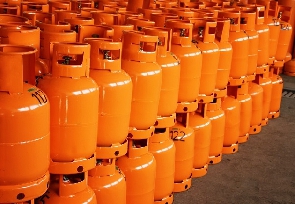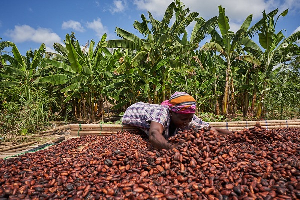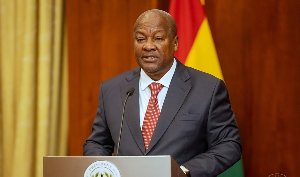The petroleum downstream observed market turbulence in Ghana in 2022.
Prices of petroleum products picked up in the second pricing Window of March 2022, and peaked in the first window, of 2022, beginning with an average price of diesel and petrol at GHS6.85 per liter for each of the products and peaking in the first window of November, at GHS23.43 per liter for diesel and GHS17.42 per liter for petrol.
The surge in prices led to the decline in the consumption of diesel by about 8% from 2,266,994,900 liters in 2021 to 2,112,680,150 in 2022 and petrol by about 7% from 2,094,346,800 litres to 1,934,898,830 litres in respective years.
In addition, the price of LPG also increased from about GHS8 per Kg in January to Ghc13 per Kg in November, decreasing consumption by about 13% from 345,478,075 kg in 2021 to 305,076,209 kg in 2022, the highest recorded decline in 2022 among the three most used products, petrol, diesel and LPG.
In the price turbulence, uncertainty in the market, and the burden that it brings to the petroleum user, the government introduced the Bank of Ghana (BoG) forex auction to the bulk distributing companies (BDCs), and later the Gold for Oil policy through the Bulk Oil Storage and Transportation (BOST).
The first option began with the auction of about 90% dollar needed by the BDCs to import finished products in April, which subsequently reduced to about 25% in November, 2022.
Although the percentage of dollar auction by the BoG to BDCs was about a third of monthly import cover to the BDCs in the last quarter of 2022, it comparatively declined prices of petroleum products by about at least 3% in each window from the inception of the intervention.
The second option, Gold for Oil, introduced in the last quarter of 2022 has also pushed prices of diesel and petrol further downwards.
The price of diesel was projected to increase in the first window of February 2023 by about 7% from about Ghc14.40/L to about Ghc17/L.
However, diesel was sold at GHS15.25, reflecting the impact of the Gold for Oil initiative.
Further, the price of petrol declined in the second window of February by about 4% due to the G40.
The government’s interventions have seen prices of petrol and diesel stabilize or declined throughout 2022 and the first two months of 2023.
However, the price of LPG keeps on increasing, now selling around GHS15 per kilogram in the second window of February, discouraging households and small businesses from using clean cooking fuel in their respective user activities.
This higher and unchecked surging of LPG prices is likely to reduce the consumption of LPG in 2023, negatively affecting the government’s policy target of achieving 50% LPG penetration of households by 2030, and making this deadline one of the unachieved deadlines on the LPG agenda.
The non-affordability of LPG forces some households to use unclean cooking fuel like firewood and charcoal, which are known to cause the depletion of our forest cover and also result in respiratory diseases and climate change.
There have been calls to the government to consider scrapping or reducing tax and levies of about GHS1.21 per kg which is about 9% of LPG price build-up in February.
The scrapping of the tax and levies is, however, not sustainable since international price of LPG has been on an upward trend since December, 2022, causing the impact of scrapping of taxes insignificant in subsequent windows. Therefore, strategies to internalising the pricing of LPG and making it affordable, should be the focus of government now, since it has achieved its objective regarding petrol and diesel.
The dollar auction policy to BDCs should be directed at LPG imports and pricing since G40 is observed to be stabilizing petrol and diesel pricing.
This would have been a better impact on LPG price reduction compared to the scrapping of the tax and levies. The direction has become a necessity because BDCs hardly need auction dollars to import diesel and petrol because of the G40 policy, which is operating at higher speed currently.
Business News of Saturday, 25 February 2023
Source: classfmonline.com













